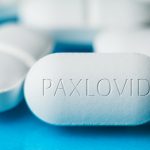
Cutting some carbohydrates may help people with type 2 diabetes live longer — as long as they are swapping sugar for vegetables instead of steak, new research suggests. The study, of more than 10,000 U.S. adults with type 2 diabetes, found that those who ate relatively fewer carbohydrates were less likely to die over the next 30 years, versus those with a bigger taste for carbs. But the quality of those lower-carb diets was key: People who ate a moderate amount of carbs but still fit in plenty of vegetables, fruit, fiber-rich grains and beans tended to live longer, versus people with higher-carb diets. Then there were the folks with lower-carb diets that were heavy in meat and dairy. They saw no such survival advantage. Experts said the findings, published in April issue of Diabetes Care, support a familiar piece of diet advice: Limit sugar and heavily processed foods, and eat more plants. More than 37 million Americans have diabetes, the vast majority of whom have the type 2 form, according to the U.S. Centers for Disease Control and Prevention. Type 2 diabetes arises when the body loses its sensitivity to the blood sugar-regulating hormone insulin. The disease is often related to obesity, and diet changes, exercise and weight loss are cornerstones of managing it. Low-carb diets are often promoted for weight loss and reining… read on > read on >





























-300x200.jpg)







-300x169.jpg)
